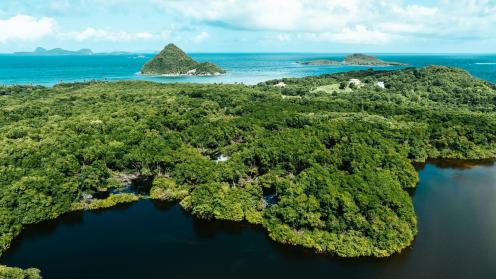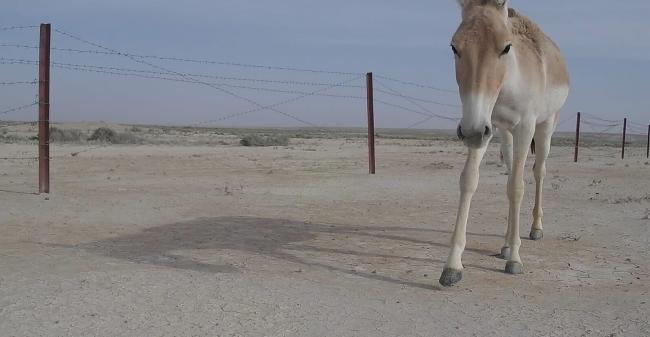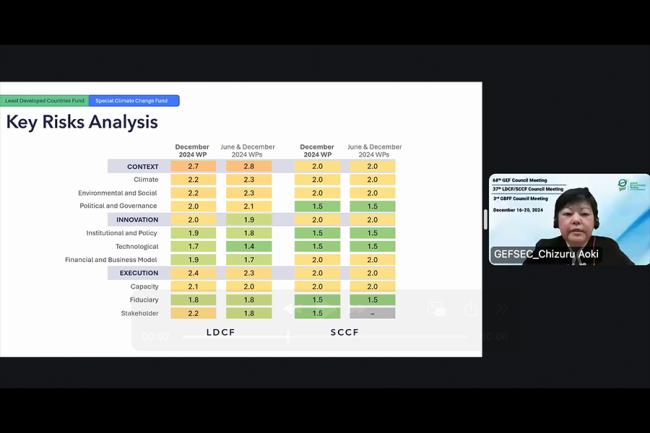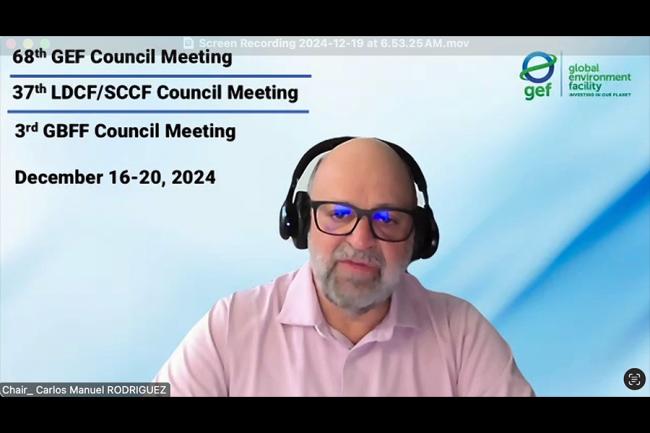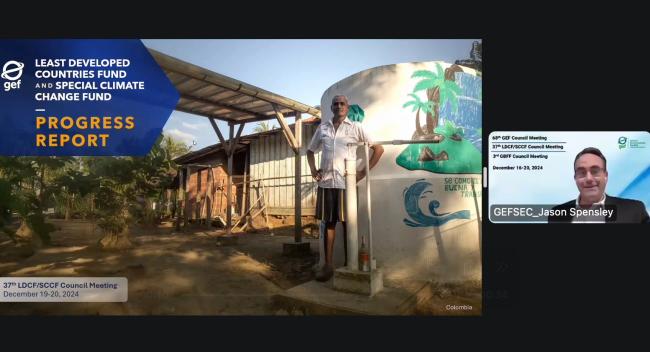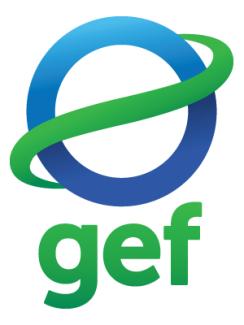Thursday’s deliberations were a “split screen,” seeing the closing of the Global Environment Facility (GEF) Council following agreement agree on two important decisions to improve Trust Fund delivery to recipient countries, particularly the least developed countries (LDCs) and small island developing States (SIDS). This was followed by the opening session of the Least Developed Countries Fund (LDCF)/Special Climate Change Fund (SCCF) Council meeting, which approved a LDCF/SCCF work program of over $100 million, amidst donor recognition of the funds’ successes in areas such as innovation, private sector partnerships, and engagement with multilateral development banks, despite resource constraints.
The two GEF Council decisions involved streamlining the GEF project cycle and possible expansion of the number of Implementing Agencies in the GEF Partnership.
The streamlining decision came after two days of negotiations on revising the list of proposed measures to adjust modalities and timelines and tweaking the decision language. As adopted, the Council decision requests the Secretariat and Implementing Agencies to work with Operational Focal Points (OFPs) to continue to streamline the project cycle as detailed in the list, along with any required policy amendments to be considered by the 69th Council session in June 2025. It also requests the Secretariat to:
- undertake further analysis and elaboration of options for consideration as part of the preparation for GEF-9 replenishment negotiations; and
- report on implementation of the measures to the 70th Council session.
A second decision, on the Strength of the Partnership, came after considering the Secretariat’s detailed analysis of the resource concentration among the current 18 Implementing Agencies, and their thematic and geographic coverage, effectiveness and efficiency, and engagement with civil society organizations (CSOs), nongovernmental organizations (NGOs), and the private sector.
The Council decided to request the Secretariat to:
- develop options to add a limited number of additional Implementing Agencies to the Partnership based on the analysis of Agencies’ regional coverage, particularly for LDCs and SIDS;
- strengthen engagement with CSOs, NGOs and the private sector, for presentation to the June 2025 Council; and
- develop additional options (such as set-asides for Agency groups with greater engagement needs, the development of incentive mechanisms, and a targeted outreach program aligned with the GEF’s Country Engagement Strategy) for consideration by the Council at a future meeting.
In his opening remarks to the LDCF/SCCF Council, GEF CEO and and Chairperson and Council Co-Chair Carlos Manuel Rodríguez emphasized that the LDCF and SCCF remain undercapitalized, constraining the GEF’s ability to deliver to LDCs and SIDS on climate change when it is needed most. He urged donors to “step up,” since funds are needed for urgent action now to avoid leaving any LDC or SIDS behind.
Via video remarks to the Council, LDC Group Chair Evans Davie Njewa lamented that some LDCF projects are not being approved due to funding constraints. Saying that “the LDCF is our fund of choice for our climate adaptation needs,” he said “our trust in the LDCF needs to be matched by contributions.” He called on donors to pledge more to the Fund.
The Work Program approved by the LDCF/SCCF Council totals USD 106.21 million – USD 93.61 million for the LDCF and USD 12.6 million for the SCCF – for eight projects and three programs to address urgent climate change adaptation priorities in nine LDCs and four SIDS. The Work Program includes three multi-country projects and five national projects.
To receive free coverage of global environmental events delivered to your inbox, subscribe to the ENB Update newsletter.
